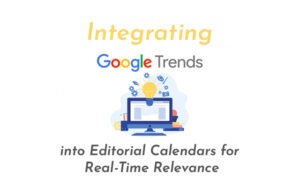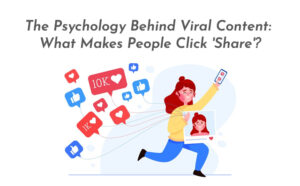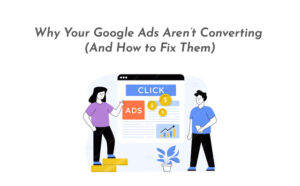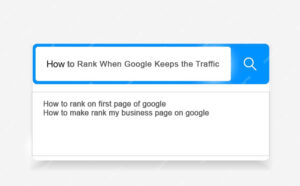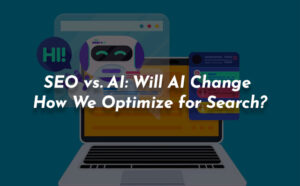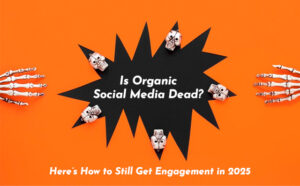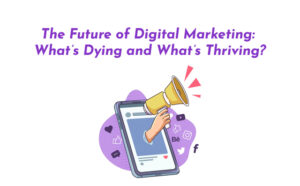Is Traditional SEO Dead? Let’s Talk.
For years, SEO has been about keywords, backlinks, and on-page optimization. But with AI-driven search engines like Google’s Search Generative Experience (SGE) and ChatGPT changing how people find information, one big question looms: Is traditional SEO still relevant, or is AI rewriting the rules?
The SEO game isn’t just evolving—it’s being disrupted. And if you’re still relying on old-school tactics, you might be left behind. So, let’s break it down. How is AI changing search, and what does that mean for SEO in 2025 and beyond?
How AI Is Reshaping Search (And Your SEO Strategy)
AI is changing search in three massive ways:
1. Search Engines Are Becoming Answer Engines
Forget ten blue links—AI-generated answers are taking over. Google’s Search Generative Experience (SGE) delivers AI-written summaries right at the top of the page. Bing and ChatGPT are already providing conversational search results.
👉 The problem? Fewer clicks to websites. If AI gives users everything they need in the search results, why would they visit your site?
You would like to read: Is Organic Social Media Dead? Here’s How to Still Get Engagement in 2025
2. Keyword Matching Is Fading—Context Is King
Old SEO: Stuff your page with the right keywords.
New SEO: AI understands intent, not just words.
Google’s AI algorithms, like RankBrain and MUM, don’t just look at keywords. They analyze context, meaning, and user behavior.
👉 What this means: Traditional keyword strategies are becoming less effective. You need to focus on comprehensive, high-value content instead of just targeting specific terms.
3. AI-Generated Content Is Flooding the Internet
AI tools like ChatGPT and Jasper are making it easier than ever to create content at scale. But with so much AI-generated content flooding the web, search engines are cracking down.
👉 Google has already warned: Low-quality AI content won’t rank. Authenticity, authority, and originality matter more than ever.
What SEO Looks Like in the AI Era (And How to Win)
So, does AI mean the end of SEO? No—but it does mean you need to rethink your strategy. Here’s what actually works now:
1. Double Down on E-E-A-T (Experience, Expertise, Authority, Trust)
Google is prioritizing content from real experts with real experience. If your content is generic and AI-generated, it won’t rank.
✅ Showcase author credentials. ✅ Use firsthand experiences (case studies, interviews, original data). ✅ Build trust with high-quality backlinks from credible sources.
You would like to read: SEO for New Year: Dominate Search Results Now
2. Optimize for Conversational and AI-Powered Search
With AI-driven search engines, people are asking longer, more conversational queries.
✅ Focus on natural language and question-based content. ✅ Create FAQ-style sections that match AI-driven search queries. ✅ Optimize for voice search—more people are searching via Siri, Alexa, and Google Assistant.
3. Write for Humans, Not Just Algorithms
SEO isn’t just about ranking—it’s about engagement. If users bounce off your page quickly, AI-powered search engines will de-prioritize your content.
✅ Create engaging, in-depth content that keeps people on your page. ✅ Use visuals, videos, and interactive elements. ✅ Avoid robotic, AI-generated fluff—authenticity wins.
4. Build a Brand, Not Just a Website
Google loves brands because users trust them. The more recognizable and authoritative your brand, the better your rankings.
✅ Invest in personal branding and thought leadership. ✅ Get mentioned on reputable sites and in the media. ✅ Encourage direct traffic—Google favors sites that people visit intentionally.
5. AI-Generated Content? Use It Wisely.
AI can be a great assistant, but don’t rely on it blindly. Instead:
✅ Use AI to speed up content research and outline creation. ✅ Always edit and humanize AI content—Google prioritizes originality. ✅ Combine AI insights with your unique expertise for better ranking content.
So, Is SEO Dead? No. But It’s Changing—Fast.
AI isn’t killing SEO—it’s forcing a massive shift. The old ways of keyword stuffing and shallow content won’t cut it anymore. Instead, the winners will be those who focus on authority, authenticity, and user experience.
Over to You: What’s Your Take?
Do you think AI is making SEO easier or harder? How are you adapting to AI-driven search? Drop your thoughts in the comments!


